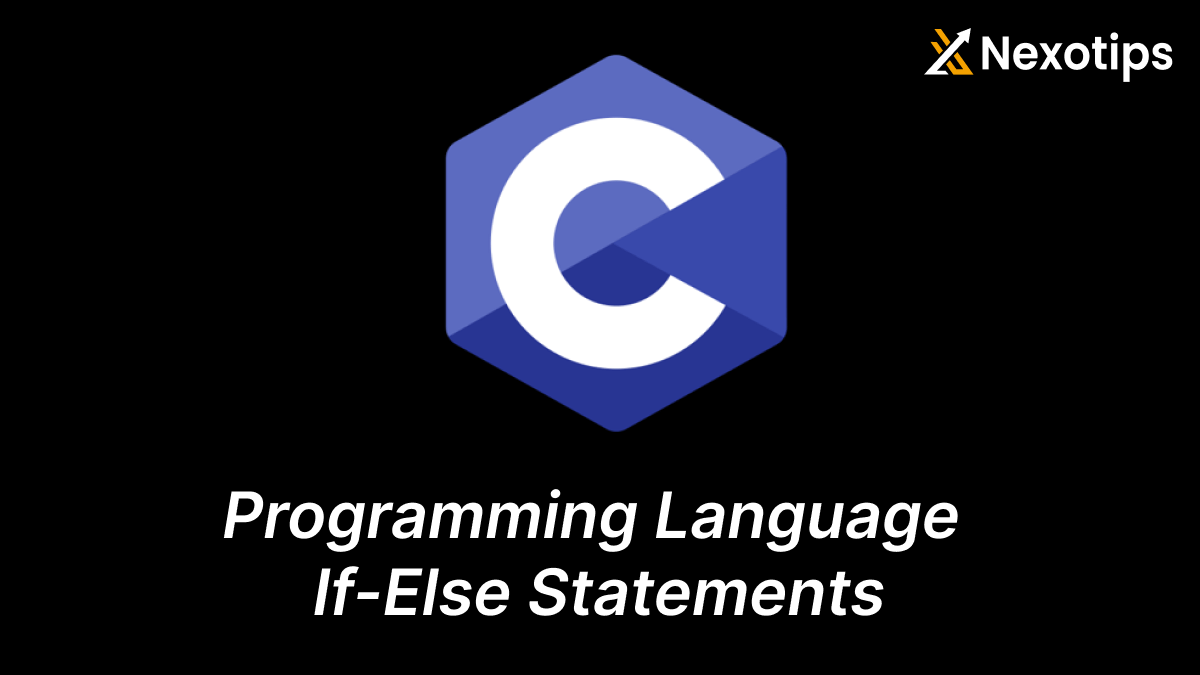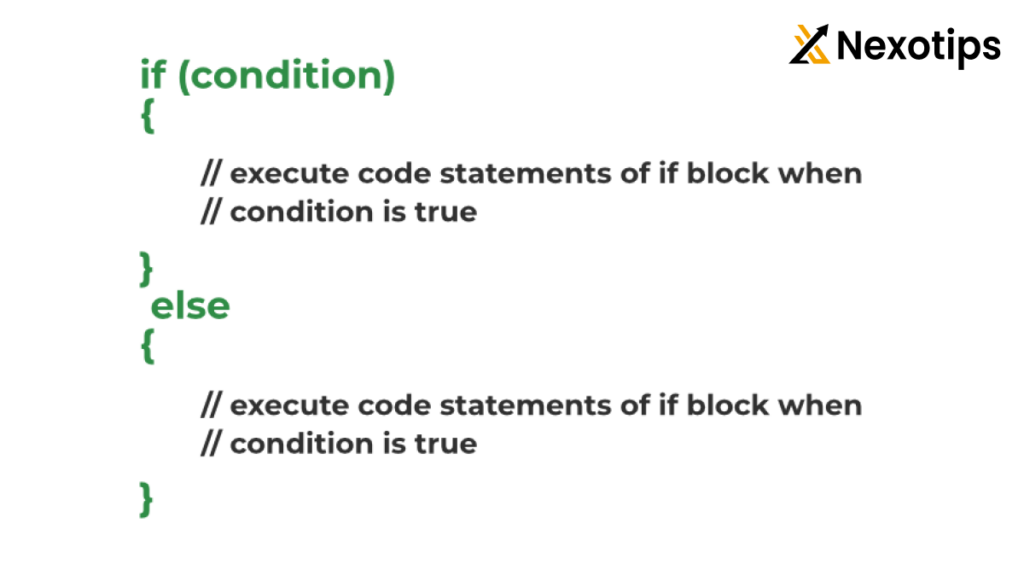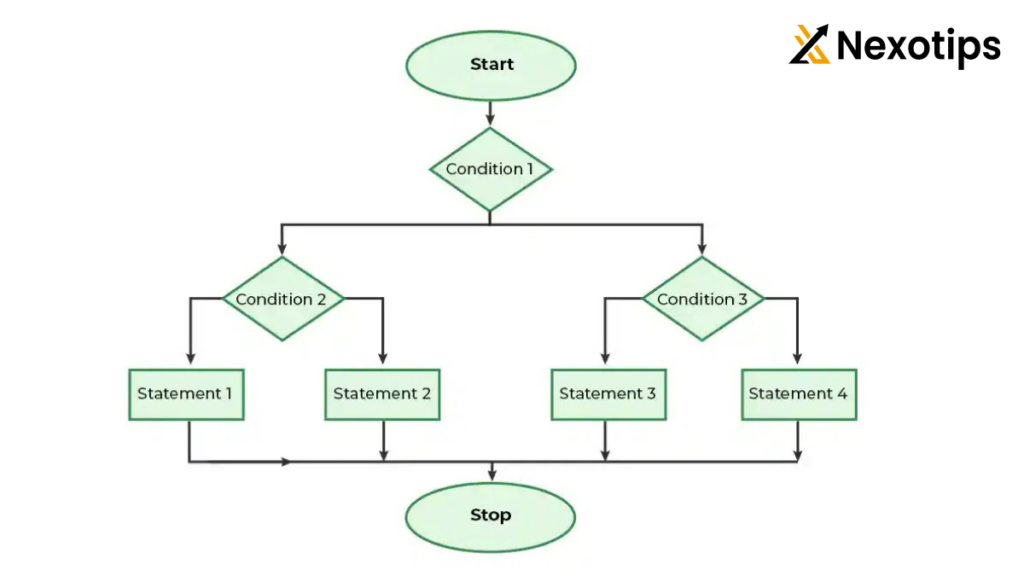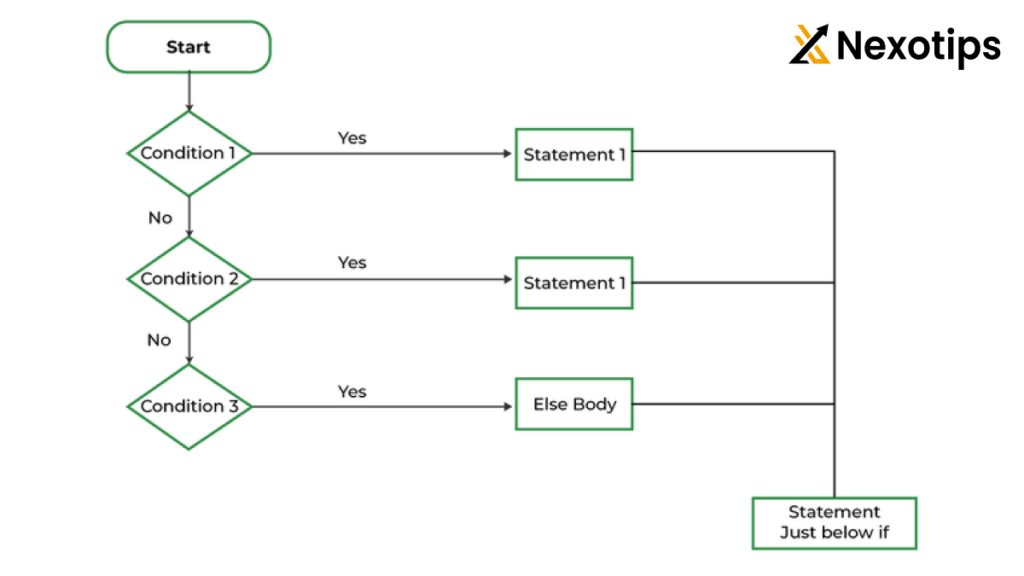
Understanding If-Else Statements in C Programming
If-Else Statements
The if-else statement is one of the fundamental control structures in the C programming language. It allows developers to control the flow of their programs by executing different blocks of code based on certain conditions. Mastering the if-else statement is crucial for any C programmer, as it is widely used in various applications, from simple decision-making processes to complex algorithms.
In this comprehensive guide, we will explore the if-else statement in detail, covering its syntax, various forms, common pitfalls, and best practices. By the end of this article, you will have a solid understanding of how to effectively use the if-else statement in your C programs.
Index.
1. Introduction to Control Structures
Control structures are essential components of any programming language. They enable developers to dictate the flow of execution based on various conditions and criteria. In C programming, the primary control structures include:
- Sequence: The default mode is where statements are executed sequentially.
- Selection: Making decisions using
if,if-else, andswitchstatements. - Iteration: Repeating actions using loops like
for,while, anddo-while.
Among these, the if-else statement is a crucial selection structure that allows for decision-making within the program.

2. Syntax of the If-Else Statement
The syntax of the if-else statement in C is straightforward but powerful. It consists of the following components:
if (condition) {
// Code to execute if condition is true
} else {
// Code to execute if condition is false
}if: This keyword is followed by a condition enclosed in parentheses.- condition: A logical statement that can have two possible outcomes: true or false.
{}: Curly braces that enclose the block of code to be executed based on the condition.
3. Basic Usage of If-Else
Let’s start with a simple example to illustrate the basic usage of the if-else statement:
#include <stdio.h>
int main() {
int number = 10;
if (number > 0) {
printf("The number is positive.\n");
} else {
printf("The number is not positive.\n");
}
return 0;
}In this example, the condition number > 0 is checked. If it evaluates to true, the program prints “The number is positive.” Otherwise, it prints, “The number is not positive.”
4. Nested If-Else Statements
Nested if-else statements allow for more complex decision-making processes. You can place one if-else statement inside another if-else statement:
#include <stdio.h>
int main() {
int number = 10;
if (number > 0) {
if (number % 2 == 0) {
printf("The number is positive and even.\n");
} else {
printf("The number is positive and odd.\n");
}
} else {
printf("The number is not positive.\n");
}
return 0;
}Here, the program first checks if the number is positive. If it is, it further checks if the number is even or odd.

5. The Else-If Ladder
When you have multiple conditions to check, using an else-if ladder can make your code more readable and efficient.
#include <stdio.h>
int main() {
int score = 85;
if (score >= 90) {
printf("Grade: A\n");
} else if (score >= 80) {
printf("Grade: B\n");
} else if (score >= 70) {
printf("Grade: C\n");
} else if (score >= 60) {
printf("Grade: D\n");
} else {
printf("Grade: F\n");
}
return 0;
}In this example, the program assigns a grade based on the score. It checks each condition in sequence, and once a condition is met, the corresponding block of code is executed.

6. Common Mistakes and Pitfalls
While the if-else statement is straightforward, there are common mistakes that programmers should be aware of:
- Using Assignment Instead of Equality: Accidentally using
=instead of==in conditions can lead to logical errors.
int a = 5;
if (a = 10) { // Should be 'a == 10'
printf("a is 10\n");
}- Missing Braces: Omitting curly braces can lead to unexpected behavior, especially in nested statements.
if (a > 0)
printf("a is positive\n");
printf("This is always printed\n"); // Incorrect indentation suggests it's part of the if block- Logical Errors: Ensuring the logic of conditions is correct is crucial to avoiding unintended results.
7. Best Practices for Using If-Else Statements
To write efficient and readable if-else statements, consider the following best practices:
- Keep Conditions Simple: Avoid complex conditions that are hard to read and understand.
- Use Logical Operators: Utilize logical operators like
&&(AND),||(OR), and!(NOT) to combine and invert conditions effectively. - Avoid Deep Nesting: Excessive nesting can make the code hard to follow. Consider refactoring or using functions.
- Comment with your code: Adding comments to explain the logic behind conditions can improve code readability and maintainability.
- Consistent Formatting: Maintain consistent indentation and formatting to enhance readability.
8. Practical Examples and Use Cases
Let’s explore some practical examples and use cases of the if-else statement:
Example 1: Age Group Classification
#include <stdio.h>
int main() {
int age = 25;
if (age < 13) {
printf("Child\n");
} else if (age < 20) {
printf("Teenager\n");
} else if (age < 60) {
printf("Adult\n");
} else {
printf("Senior\n");
}
return 0;
}In this example, the program classifies a person into different age groups based on their age.
Example 2: Temperature Check
#include <stdio.h>
int main() {
float temperature = 36.5;
if (temperature > 37.5) {
printf("Fever\n");
} else if (temperature < 35.0) {
printf("Hypothermia\n");
} else {
printf("Normal\n");
}
return 0;
}This program checks the temperature and categorizes it as “Fever,” “Hypothermia,” or “Normal.”
Example 3: Leap Year Checker
#include <stdio.h>
int main() {
int year = 2024;
if ((year % 4 == 0 && year % 100 != 0) || (year % 400 == 0)) {
printf("%d is a leap year.\n", year);
} else {
printf("%d is not a leap year.\n", year);
}
return 0;
}Here, the program determines if a given year is a leap year based on specific conditions.
9. Conclusion
The if-else statement is an indispensable tool in C programming, providing a mechanism to make decisions and control the flow of execution based on conditions. By understanding its syntax, usage, and best practices, you can write more efficient and readable code. Whether you’re checking simple conditions or implementing complex logic, mastering the if-else statement is essential for any C programmer.
In this guide, we’ve covered the basics, explored nested if-else statements, discussed the else-if ladder, highlighted common mistakes, and provided practical examples. With this knowledge, you are well-equipped to leverage the power of the if-else statement in your C programs, creating robust and maintainable code.
Others: C Operators In The C Programming Language: A Comprehensive Guide
